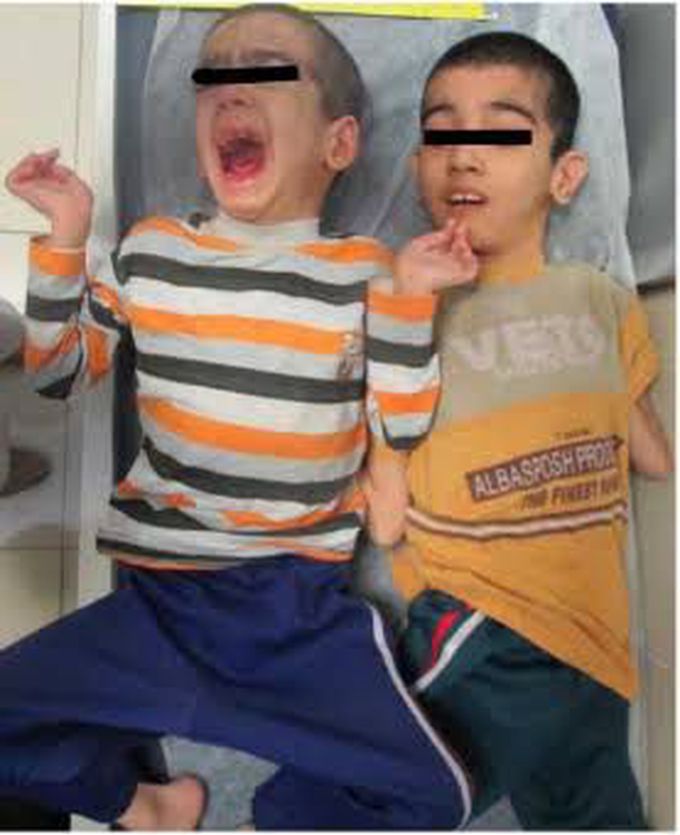

Pelizaeus-Merzbacher Disorder (PMD)
INTRODUCTION: Pelizaeus-Merzbacher Disorder (PMD) is a rare central nervous disorder caused by a defect in myelination. It is therefore classified as leukodystrophy and is inherited as an X-linked disorder caused by a defect in myelination. Its cardinal features are nystagmus, spastic quadriplegia, ataxia, and developmental delay. CAUSE: The most common cause of PMD is a mutation of the Proteolipid protein (PLP) gene producing a structural protein involved in the construction of central nervous system myelin CASE REPORT: Here we present a 9-year-old Iranian boy to unrelated apparently healthy parents. He was referred to Kariminejad-Najmabadi Pathology & Genetics Center for genetic counseling. He had severe mental retardation according to WHO ICD 10 guideline with severe developmental delay. He could not walk, talk, or even hold his neck. He had a history of seizures since he was 4 and was being managed with phenobarbital. He was cachectic. At physical examination bilateral nystagmus, microcephaly, spastic quadriplegia, and macroorchidism were noted. Chromosomal study had been previously performed and reported as normal. Molecular testing for Fragile-X was normal. Brain MRI reported cerebral atrophy He had an older brother who is 15 years old and a maternal uncle with similar clinical features. CLINICAL FEATURES : The clinical features seen in most patients diagnosed with PMD, based on different articles, are developmental delay, microcephaly, hearing impairment, rotary head movements, ataxia, spasticity, psychomotor delay, scanning speech, and dysmyelination of the brain [5, 7, 12]. Our patients have developmental delay, microcephaly, spasticity, psychomotor delay, and dysmyelination of the brain. All these findings are rather common manifestations in many syndromic and nonsyndromic types of intellectual delay and therefore extremely insubstantial for reaching a clinical diagnosis. TREATMENT: There is no standard treatment method or regimen for individuals with PMD. Treatment is based upon specific symptoms present such as medications that prevent seizures or those used for movement disorders. Supportive care, including emotional support for family members, is recommended as needed. Credits: https://www.hindawi.com/journals/crig/2017/2706098/ https://rarediseases.org/rare-diseases/pelizaeus-merzbacher-disease/#:~:text=There%20is%20no%20standard%20treatment,members%2C%20is%20recommended%20as%20needed.
